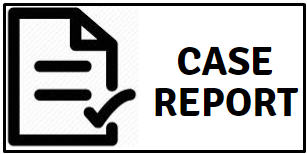PENATALAKSANAAN FISIOTERAPI PADA KASUS DOWN SYNDROME
DOI:
https://doi.org/10.52019/ijpt.v4i2.9141Abstrak
Down Syndrome adalah kelainan genetik yang terjadi akibat adanya tambahan kromosom 21. Kondisi ini menyebabkan berbagai masalah perkembangan, seperti keterlambatan motorik, hipotonia otot, serta keterbatasan kognitif dan sosial. Berdasarkan data dari World Health Organization (WHO), prevalensi Down Syndrome di dunia mencapai sekitar 1 kasus per 1.100 kelahiran. Penatalaksanaan fisioterapi menjadi bagian penting dalam membantu anak-anak dengan Down Syndrome untuk mengembangkan keterampilan motorik, meningkatkan fungsi postural, dan memperbaiki kualitas hidup. Pasien berusia 3 tahun 5 bulan dengan Down Syndrome mengalami keterlambatan perkembangan motorik, termasuk belum mampu berjalan secara mandiri, meskipun sudah dapat duduk dengan stabil dan berguling. Pemeriksaan klinis menunjukkan adanya hipotonia otot, postur tubuh yang kurang stabil, dan keterbatasan pada lingkup gerak sendi. Pasien memiliki kondisi hipermobilitas sendi yang ditandai dengan postur yang kurang simetris dan kelemahan otot postural. Diagnosis pasien adalah Down Syndrome (Trisomi 21). Intervensi fisioterapi yang diberikan meliputi Neurodevelopment Treatment (NDT) untuk meningkatkan kontrol postural dan stabilitas tubuh, play therapy untuk stimulasi motorik halus dan kasar, sensory treatment untuk merangsang sistem sensori motorik, serta latihan positioning untuk memperbaiki postur dan stabilitas sendi. Setelah tiga sesi terapi, terjadi perbaikan signifikan dalam kemampuan pasien untuk berdiri dengan lebih stabil, pengurangan hipotonia otot, dan peningkatan kontrol motorik kasar. Keberhasilan intervensi fisioterapi pada pasien dengan Down Syndrome bergantung pada konsistensi terapi yang berkelanjutan dan peran aktif orang tua dalam melakukan latihan di rumah. Hal ini menunjukkan pentingnya kolaborasi antara fisioterapis dan keluarga pasien untuk mendukung perkembangan optimal anak.
Kata Kunci : Fisioterapi, Down Syndrome, Neurodevelopment Treatment, terapi bermain, sensorik.








